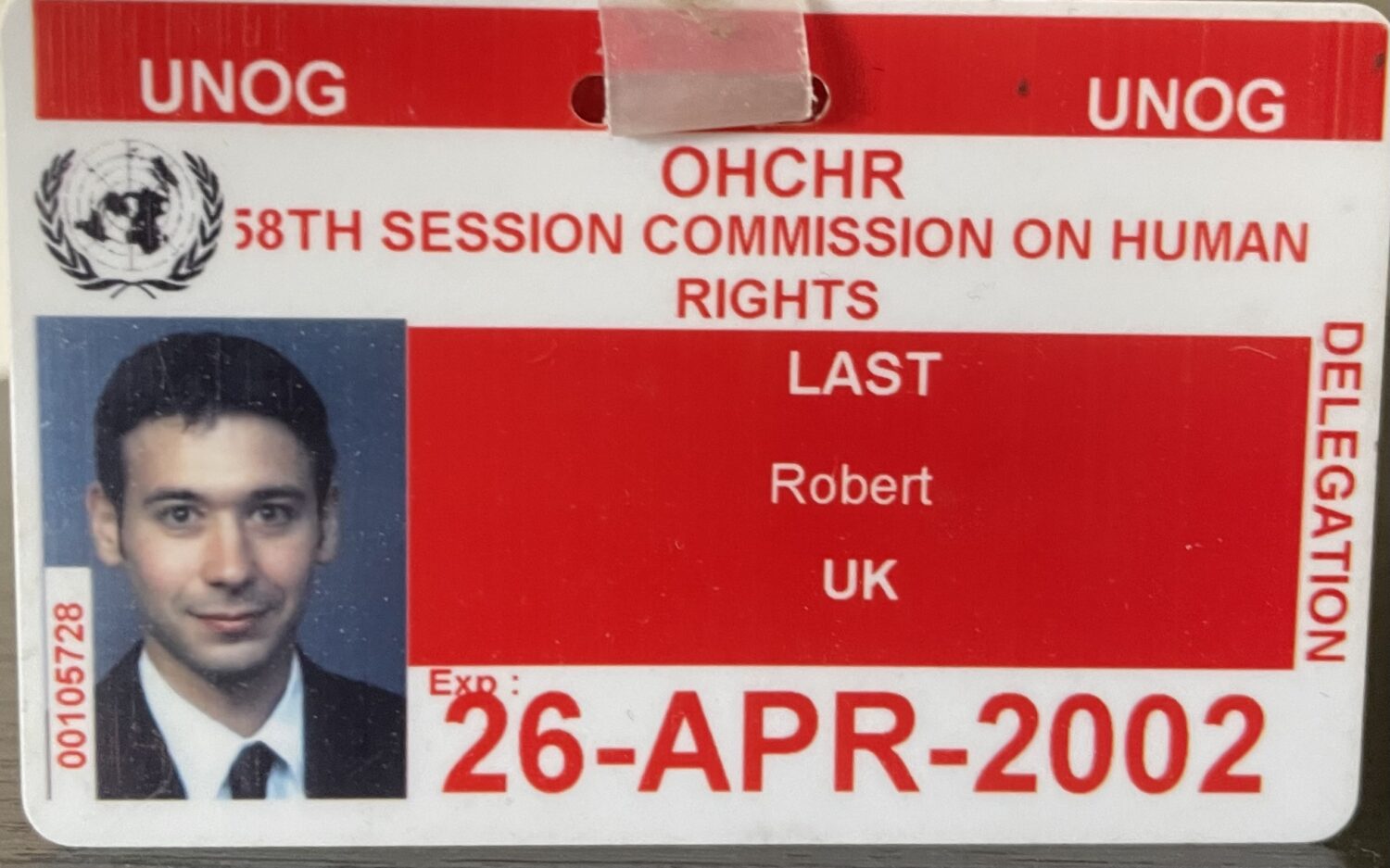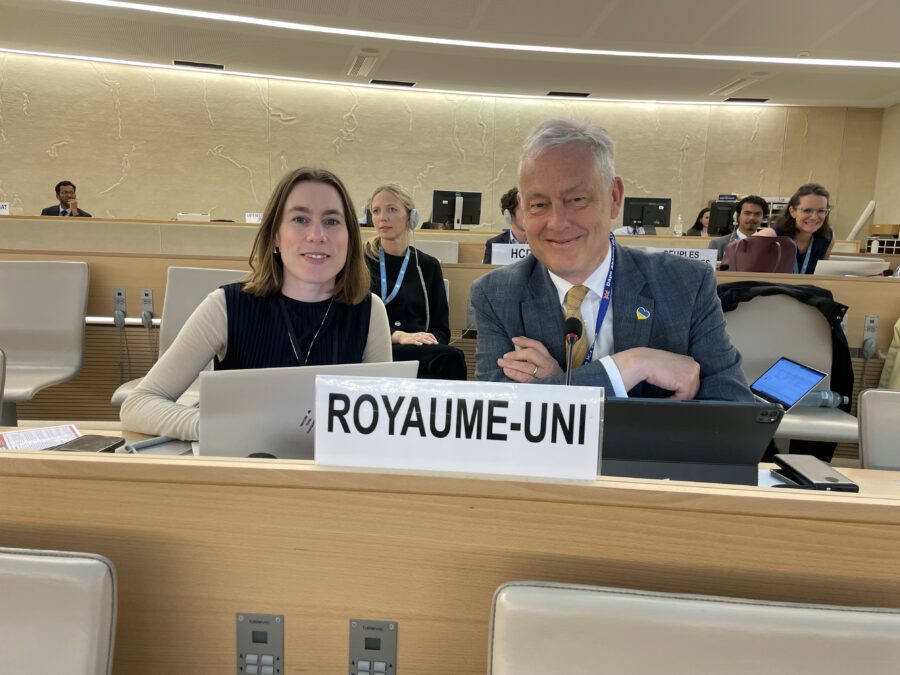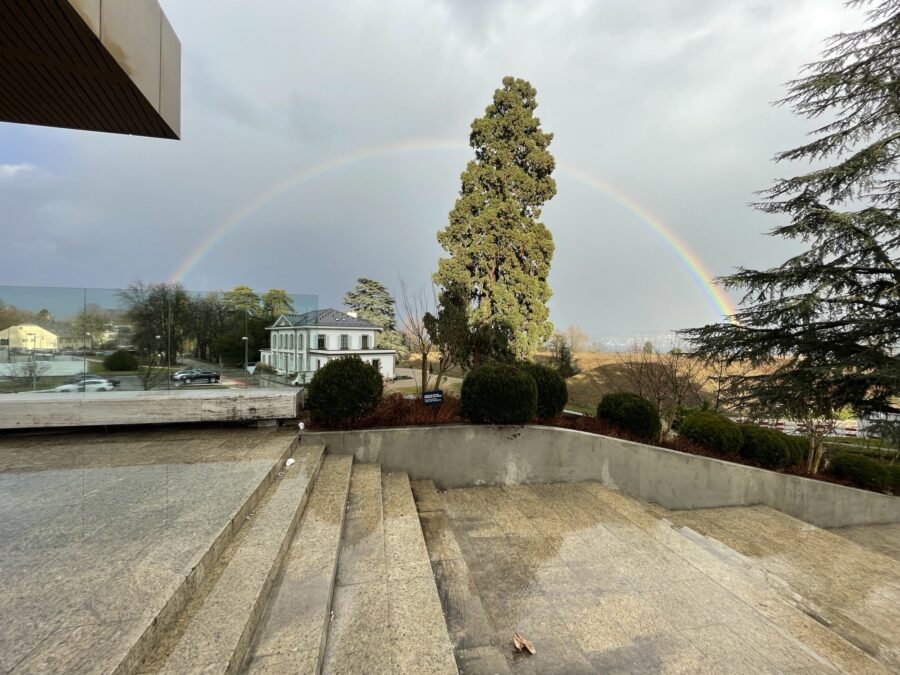10th April 2025 Geneva, Switzerland
The Long Haul

I’m back where I started. Sort of. When I began doing whatever it is we do out here, (let’s call it endurance diplomacy) it was the 58th session of the Commission on Human Rights. The Roman Empire hadn’t long since fallen, smart phones were yet to excite and then blight our lives and the Human Rights Council wasn’t even a twinkle in the late, great Kofi Annan’s eye.
Back in 2002 the old Commission on Human Rights was struggling to cope with a growing number of new or chronic crises in Afghanistan, Burundi, Chechnya, Democratic Republic of the Congo, Iran, Myanmar, the Occupied Palestinian Territories Sudan, and elsewhere.

It’s disheartening that many of the countries on the Council’s current agenda were also considered for many years at the Commission, and in several cases things have got worse, not better. Russia managed to defeat the resolution on Chechnya the following year despite clear reports of enforced disappearances, extrajudicial executions, arbitrary detentions, and indiscriminate military force against civilians. Perhaps if the Commission had been able to maintain its independent reporting on Chechnya, Russia may have felt less emboldened to commit the appalling violations which later followed in Georgia, Syria and Ukraine or to persecute its own people on the scale we see today.
But before I get too gloomy there were successes too – Timor Leste was still on the old Commission’s agenda when I arrived. It became formally independent soon afterwards and is now a strong voice for human rights at the UN. The situations in Sierra Leone, northern Uganda and the former Yugoslavia – all then subject of Commission resolutions – have transformed since 2002.
The big story from this Council session was Syria . Those who oppose country resolutions will tell you that they don’t make a positive difference or even that they make things worse. For the past 14 years the Council has drawn regular attention to the catalogue of atrocities by the Assad regime. And the Syria Commission on Inquiry has left no one in any doubt about the horrors which have taken place. Over recent years, other crises had been drawing attention away from Syria, but the Commission continued its crucial work thanks to the Council’s resolutions.
In a historic breakthrough this session, the new Syrian Government supported the UK-led resolution and granted access to Syria to the Commission of Inquiry for the first time. Clearly there is a long way to go to bring about peace justice and accountability for Syrians – but this was hugely significant demonstration that the new Government is willing to engage with the Council to make progress. And an important reminder that staying the course on human rights is essential.

The early talk of the session was about the US’s absence, particularly when Israel and Nicaragua joined them in walking away from the Council. The worry was that more countries might follow and plunge the Council into a full-blown crisis. Thankfully that didn’t happen, though Nicaragua’s refusal to complete its Universal Periodic Review presents a tricky challenge to UN human rights system.
The United States also wasn’t a member of the Commission in 2002 after losing an election bid against other western countries. Back then, the US stayed in the room, but their much-reduced presence contributed to the Commission’s faltering outcomes that year. Things never quite recovered and the Commission soon entered its death spiral before being dissolved in 2006.
Encouragingly, the US’s departure seems to have not had the same negative effect on how the Council went this time around. Iceland’s resolution on Iran passed once again this time, creating a revamped investigation mechanism to look into a wide range of violations, while also renewing the Council’s Special Rapporteur. The UK-led resolution on South Sudan passed by an increased margin, no doubt due, at least in part, to the recent deterioration in the situation there and the detention of first Vice President Riek Machar. Ukraine’s resolution to renew the Commission of Inquiry into Russia’s violations against Ukraine also passed by a solid vote margin, demonstrating ongoing solidarity with Ukraine and condemnation for Russia’s barbarity.
There were some interesting new things too. A first ever resolution on the human rights implications of anti-personnel mines led by Algeria, Croatia, South Africa, the UK and Vanuatu passed by consensus with strong support. And it appears we will have a new human rights treaty on the rights of older persons following a resolution by Argentina. Do older people need specific new rights, or just better measures to make sure their rights are upheld? I’m not exactly sure what I think about it to be honest, but I feel a lot more supportive of the idea now than I used to. 58 Council sessions will do that to you.
